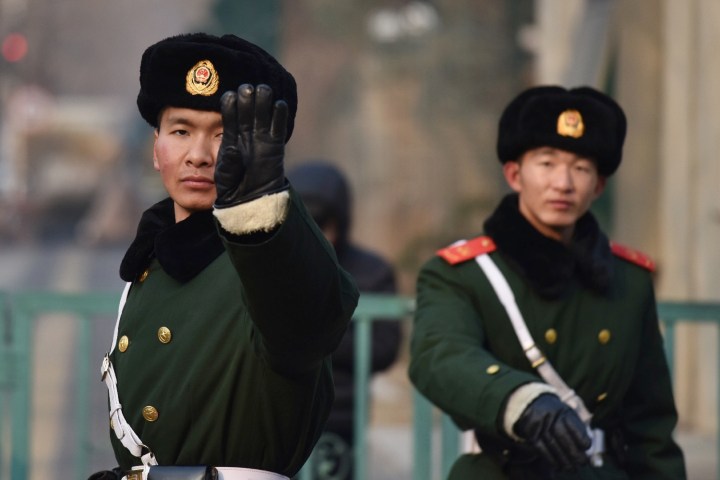Police in Beijing are reportedly testing out new smart glasses enabled with license plate and facial-recognition technology. The smart tech, which is being used at a highway checkpoint on the outskirts of the city, can not only identify individuals who are stopped but also match them with a police database of wanted suspects. When a person is flagged, the glasses show the police officers a warning sign, which prompts them to take further action.
The glasses use augmented reality technology developed by the startup LLVision. Their adoption is timed to coincide with the annual meeting of China’s parliament in central Beijing. Beyond this, it is part of a push by leaders in China to use smart technology to boost security. President Xi Jinping is particularly enthusiastic about ways to employ (and deploy) artificial intelligence, facial recognition, and big data technology to track behavior which is viewed as running counter to the interests of the ruling Communist Party.
Surveillance of citizens has been an issue of contention in various facets of life, such as the concerns about Apple recently moving Chinese iCloud user data to a cloud computing company operated by a local startup.
While some people will certainly be worried about the possibility of police using facial-recognition tech to flag individuals, however, LLVision chief executive Wu Fei told Reuters that there is no cause for concern. The reason? Because he trusts the government, and Chinese authorities are using the tech only for “noble causes.”
Interestingly, this is far from the first time that facial recognition has been used to stop wrongdoers in Beijing. In 2017, we reported on how visitors to a certain restroom in the capital city were having their faces scanned in a bid to prevent locals stealing the paper for use at home. The technology stops users from receiving more than two feet of paper in a nine-minute period.
In the U.S., facial-recognition technology has yet to be used by police. However, recent advances in the technology mean that it can now be used to recognize individuals even when they try to purposely obscure their identity by wearing a fake beard or giant sunglasses.



